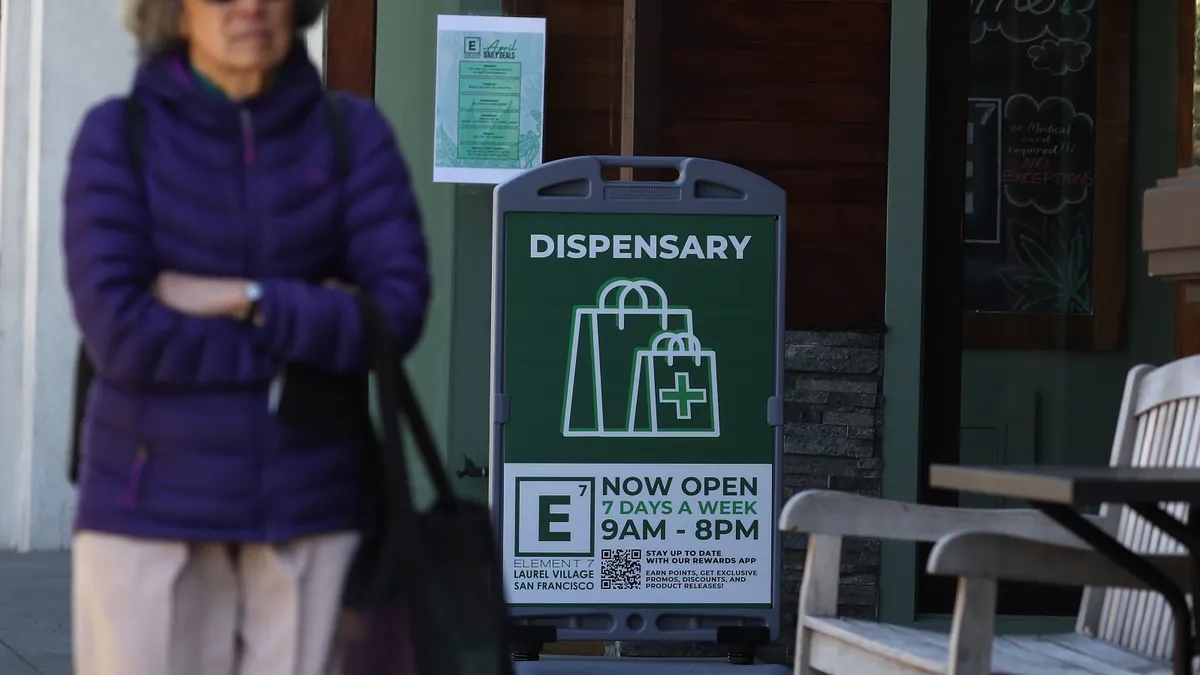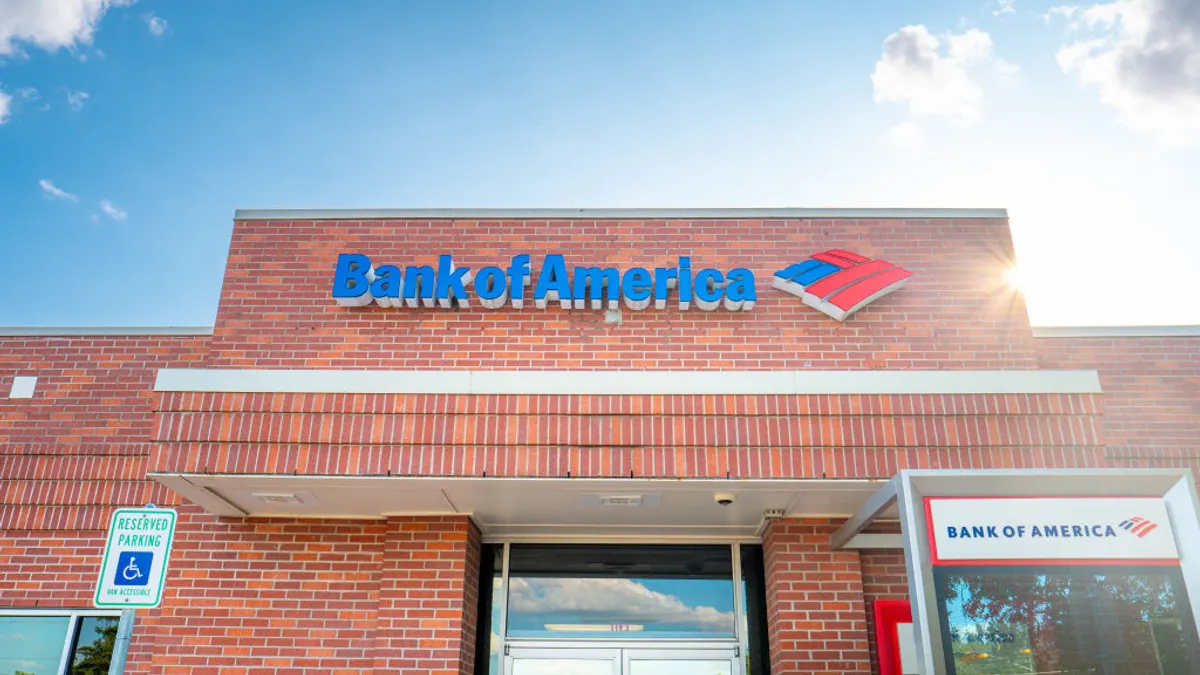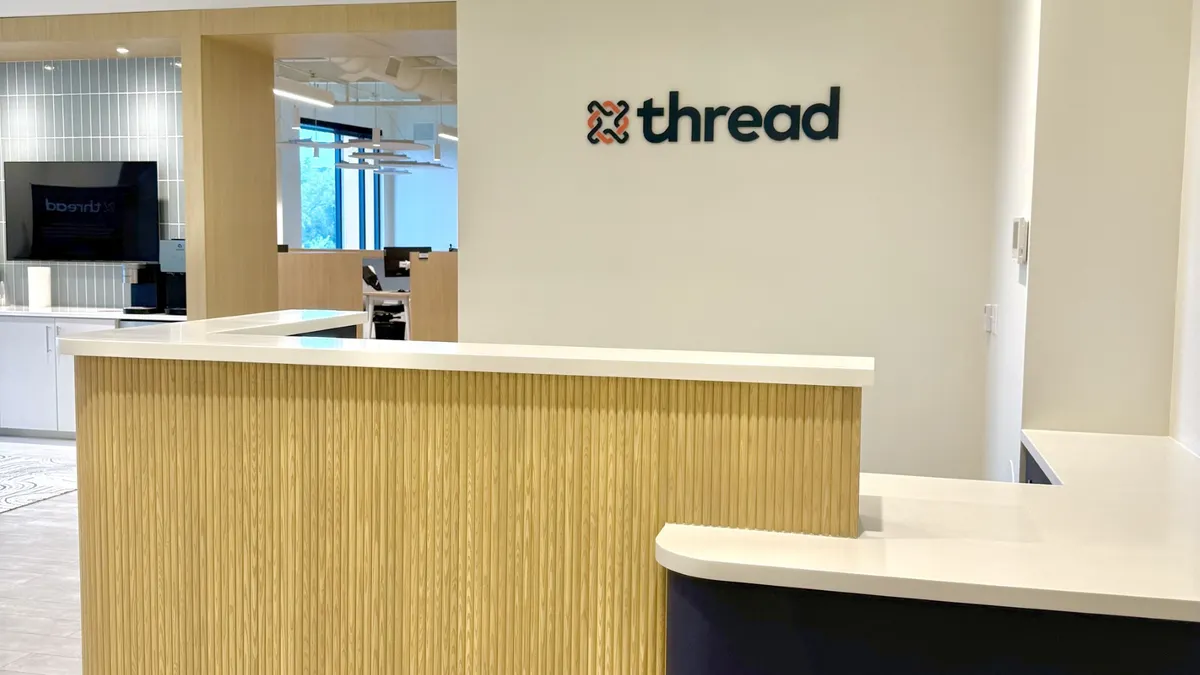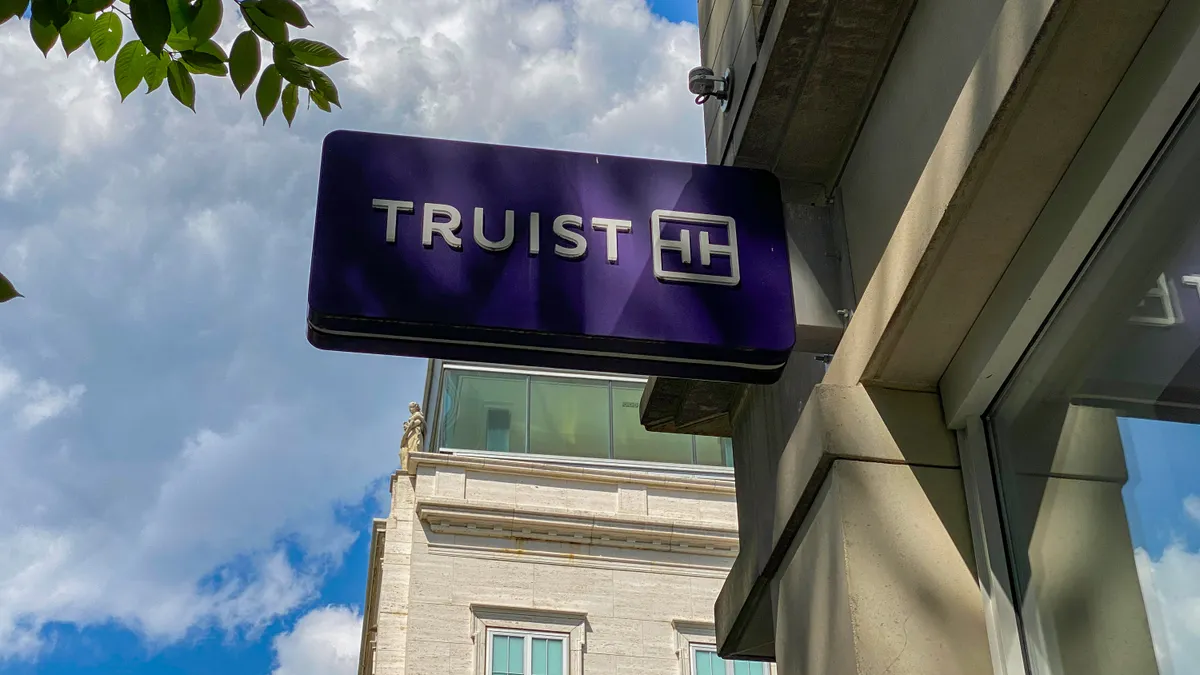Even as the Justice Department moves to reclassify marijuana as a lower-risk drug, bipartisan cannabis banking legislation that’s yet to face a full Senate vote is still needed, industry players said.
The likelihood of further action on that legislation this year, though, is uncertain. Advocates say they’re hoping the bill can be attached to a larger legislative vehicle, as stand-alone passage seems increasingly unlikely.
The DOJ said April 30 it’s planning to reschedule cannabis as a Schedule III controlled substance, The Associated Press reported. Marijuana is now a Schedule I substance, in the same category as heroin, LSD and ecstasy; the move would put cannabis into the same group as anabolic steroids and Tylenol with codeine.
Meanwhile, the Secure And Fair Enforcement Regulation Banking Act, which would make it easier for banks to serve state-legal cannabis businesses, awaits a Senate floor vote. The Senate Banking Committee approved the bill 14-9 last September. It’s a revised version of the SAFE Banking Act, which the House has passed seven times since it was first introduced in 2013.
Medically, marijuana is legal in 38 states, and recreationally legal in 24 and the District of Columbia. Even if rescheduled, however, “cannabis would still be largely illegal under federal law, and that is a line many banks in this country will not cross,” Rob Nichols, CEO of the American Bankers Association, said in a recent statement.
Many lenders are reluctant to bank the industry due to risk and compliance burdens. Passing the cannabis banking legislation “would address the ongoing legal limbo around cannabis banking, while enhancing public safety, tax collection and transparency,” Nichols said in the statement.
Although rescheduling would represent a step forward for cannabis advocates, the need for regulatory safe harbor remains for community banks that want to serve state legal-related cannabis businesses, said Steve Keen, senior vice president of congressional relations at the Independent Community Bankers of America.
Banks that serve the state-legal marijuana industry closely follow 2014 guidance from the Financial Crimes Enforcement Network, which advises lenders on how they can serve cannabis-related businesses aligned with Bank Secrecy Act expectations.
“Frankly, at this stage, that’s getting a little bit out of date,” Keen said.
The SAFER Banking Act would also require FinCEN to issue new guidance with an understanding of the regulatory safe harbor.
The Cannabis Financial Industry Group has issued best practices for financial institutions in the absence of more federal guidance, said Erin Moffet, policy adviser to CFIG and the National Cannabis Roundtable. If the legislation isn’t passed in tandem, those groups hope rescheduling cannabis “at least makes people deem it less risky, to continue normalizing relations,” Moffet said.
A limited number of banks serve the cannabis industry today. It’s nearly impossible to tally them, Keen said, in part because it’s not just counting financial institutions that fully bank cannabis dispensaries. The tally includes banks that extend loans to commercial landlords who count dispensaries among their tenants, or fertilizer companies that have cannabis growers among their clients.
Ultimately, Keen said regulatory safe harbor afforded by the SAFER Banking Act would lead more banks to get onboard with serving the industry.
Compared with larger financial institutions, “community banks are more likely, at this moment, to take this on,” Keen said. Local banks have a better view of a community’s needs and how they could help, he said, pointing to public safety issues presented by dispensaries conducting business in cash.
The ICBA had hoped the legislation could be attached to the bipartisan Federal Aviation Administration reauthorization bill that was passed by the Senate on Thursday ahead of a Friday deadline, but that didn’t happen.
The most likely prospect for the bill this year is finding another legislative vehicle and trying to attach it to that, Keen and Moffet said.
“We will look for any viable option,” Keen said. “It remains our hope that SAFER Banking can be passed this year.”
The backing of Senate Majority Leader Chuck Schumer, D-NY, has been beneficial, Keen noted. ICBA has been “trying to do outreach to the greatest extent possible,” Keen said, noting House Speaker Mike Johnson, R-LA, has opposed the bill in the past.
Sen. Jeff Merkley, D-OR, one of the Senate bill’s sponsors, along with Sen. Steve Daines, R-MT, also remains hopeful about movement yet this year.
Passing the SAFER Banking Act remains “a top priority for me,” Merkley said in a statement Saturday.
“Legal cannabis businesses need access to the same basic financial services as other small businesses to protect their employees, their customers, and their business,” he said. “Our bipartisan bill is gaining momentum, and I plan to continue to engage with leadership and other Senators to get this done this year.”
On the House side, Rep. Dave Joyce, R-OH, said in a Monday statement that the legislation “has established broad bipartisan support after numerous house votes.”
“We’re working closely with Senate sponsors to develop a path forward,” he said.





















